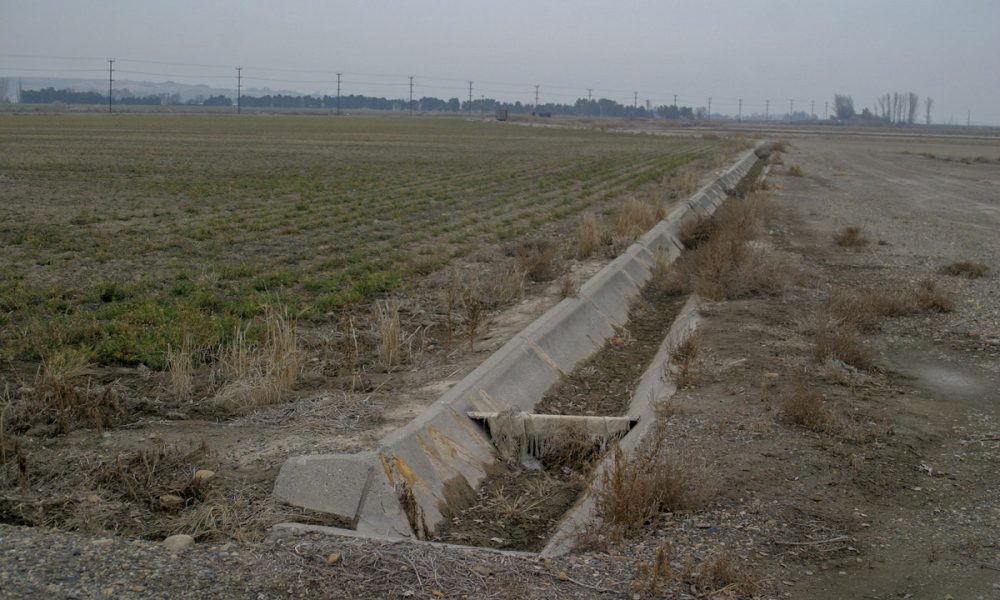
Greg Smith, Malheur County’s economic development director, took an extraordinary step on Wednesday, releasing a three-page statement in response to an investigative report published earlier in the day by the Malheur Enterprise. We have already shared that statement on our website and on our Facebook page.
Smith’s statement is the first time he has publicly addressed some of these issues. Since his statements challenge the Enterprise’s story, we want to provide readers responses to certain claims he has made. The statements in italics are quoted directly from his statement followed by our analysis.
DOCUMENT: Greg Smith’s statement
LINK: Malheur Enterprise story
STATEMENT: After the state reimbursed the costs, the balance of the line of credit stands at zero dollars today, not the $200,000 incorrectly reported by the Malheur Enterprise. Again, there is zero outstanding debt owed on this project and the facility should open with zero debt.
RESPONSE: Smith’s assertion that the Enterprise “incorrectly reported” on the credit line is not true. What the Enterprise reported: “As of Feb. 13, the county through its development company owed $200,000 to Umpqua Bank.” This is documented by the bank statement of Umpqua Bank obtained from Malheur County through a public records request:

Malheur County released this document on April 10. On April 17, the county issued a check to Umpqua Bank for $85,127.16. On May 2, the Enterprise emailed Smith: “The loan statement dated Feb. 13, 2019, shows that Malheur County Development Corp. is in debt to Umpqua Bank for a total of $204,221. What is the current balance if this has changed?”
Smith didn’t answer and we reported, “Smith didn’t respond to questions about the level of that debt now.”
STATEMENT: The county did not hire Greg Smith, an individual, but a company comprised of multiple employees with talents needed for a variety of county projects.
RESPONSE: Smith implies a statement not included in the story. The Enterprise did report: “The county pays his company – Gregory Smith & Co. – $9,000 a month to operate as the county’s economic development agency.” The contract between the county and Smith’s company, however, does state: “COUNTY through this contract is engaging in the expertise, experience, judgment and personal attention of Gregory Smith.”
STATEMENT: Much of the information requested could have been easily acquired by simply attending a board meeting and speaking directly with those board members…
RESPONSE: The board of Malheur County Development Corp. doesn’t meet on a set schedule as do city councils, school boards and even the Malheur County Court. The board in recent months met Dec. 18, Jan. 11, and Feb. 27. The notice of that last board meeting was issued just the day before – and only to the Argus Observer. The Enterprise had no notice of the meeting. There was no advance posting that we could locate on any county website or social media account. When questioned about that lack of notice, Smith responded to the Enterprise by email, “In the future, I have directed my staff to also place our meeting notices on our Facebook page.” There’s no record that the board has met since.
As for “speaking directly with those board members,” the Enterprise has repeatedly contacted the board president, Grant Kitamura. He has provided some information but often provides “no comment” for the record.
STATEMENT: The Malheur Enterprise recently reported $534,000 has been spent on “consultants and contractors for planning.” The figure sounds dramatic and is in fact, incorrect.
RESPONSE: The Enterprise provided county officials the full accounting of that $534,000 number by email on Sunday, May 5, so they would have it when they arrived Monday morning. This is what was sent to county officials:
TREASURE VALLEY RELOAD CENTER – PROJECT COSTS TOTAL COSTS:
Malheur County Development Corp. vendor payments $461,227 Source: Nichols Accounting check list – to 1/25/19
Malheur County contract payments – Greg Smith & Co. $54,000 Source: Malheur County invoices – $6,000 supplement
Malheur County direct payments $20,675 Source: Malheur County monthly payment report $5,000 Nyssa Industries; $2,500 Farmers; $2,581.34 Larry Wilson travel; $10,594 Winterbrook Planning
TOTAL COSTS $533,903
The officials were asked to review our information for accuracy and tell us of any error: “Please review this summary of information available through public records at this date concerning costs and sources of revenue related to TVRC. We have worked diligently to be accurate. Greg Smith, the county’s economic development director, continues to disregard our requests for interviews or our invitation for him to submit or review information. If you identify any factual error, please flag the error and provide what you consider to be factually accurate information. We need a response by 5 p.m. Monday to allow time for changes before we go to press.”
This was sent to Greg Smith’s Malheur County email. There was no response.
This was sent to County Judge Dan Joyce. There was no response.
This was sent to County Administrator Lorinda DuBoise. There was no response.
This was sent to County Counsel Stephanie Williams. There was no response.
STATEMENT: In reality, the cost for planning is .021 percent of the total $26 million budget.
RESPONSE: This appears to be an error by Smith. Applying his figure – a fraction of 1% – he appears to say that “the cost for planning” was $5,460. That’s a significant error by Smith since the state alone has paid the county more than $327,000 for this work.
If in fact Smith intended to say that the planning represents 2.1% of the $26 million budget, that math would make the costs $546,000 – higher than the figure reported by the Enterprise. Smith would have access to the most recent records, and he typically takes up to three weeks to provide public records requested by the newspaper. The Enterprise relied on the most recent records it obtained. The story reported: “Those records provide the most recent accounting of the cost of the project – about $534,000 in the past year.” The Enterprise didn’t report that it had every record of every expense.
STATEMENT: One expense not reimbursed by the state was the necessity to include 290 acres for future development in and around the rail facility. A total of $85,000 was required to rezone land from agricultural to industrial…As this work was outside the scope of work approved by the Oregon Department of Transportation, reimbursement was not available.
RESPONSE: This statement is not entirely true. Winterbrook Planning of Portland was retained to work on land-use, zoning and urban growth boundary issues, according to its invoices. State records show that the county claimed and the Transportation Department reimbursed $17,021.54 for two Winterbrook invoices. The county sought reimbursement from the state on a third claim for Winterbrook’s expenses of $12,148.54 that was denied. As recently as last month, the Malheur County Court was advised the county was still pursuing state reimbursement. According to April 17 court minutes, the commissioners were told: “Invoices for the planning and zoning expenses to rezone the property for the Reload Facility have been submitted to ODOT (Oregon Department of Transportation) for reimbursement.”
STATEMENT: The question left out by the Malheur Enterprise’s article is what did Malheur County residents and state taxpayers receive for their money?
RESPONSE: This statement is misleading. The Enterprise in fact reported: “Most of the money financed two crucial tasks – preparing a proposal for the state and tackling the highly technical task of converting the zoning of Nyssa-area farmland to industry.”
The article also reported:
“Economists worked on the business case – that enough onions would ship out of Nyssa to make the Treasure Valley Reload Center profitable.”
“Rail experts considered what rail operations and tracks are needed to draw Union Pacific Railroad to extend service, critical to the industrial complex.”
“Engineers sketched out roads, sewer and water lines, and designed a warehouse that would be the heart of Nyssa’s shipping center.”
STATEMENT: The Malheur County Court and the volunteer board of the project will never be compensated.
RESPONSE: This statement is not entirely true. All three members of the Malheur County Court are paid employees of the county. Judge Dan Joyce is paid $73,560 and Commissioners Don Hodge and Larry Wilson are paid $29,424 a year.
BOTTOM LINE: In three pages, Greg Smith didn’t correctly cite a single factual error in the report in the Enterprise. The news team follows a rigorous fact-checking process to produce work that is accurate and fair. Here’s what what we did in advance of this story.
First, we provided Smith written questions on Thursday, May 2. We also gave him an invitation with those questions: “We invite any general comment you would like to offer about what the half-million dollars produced to date for Malheur County, and any comment on likely costs ahead. We invite any comment you care to offer about needing to go into debt for this project and to go into Malheur County’s funds to cover other expenses.”
He didn’t respond to the questions or the invitation.
On Monday morning, the Enterprise sent Smith and his project manager, John Braese, an email with 17 factual statements: “At the Enterprise, we strive for fairness and accuracy in our reports. I am sharing draft excerpts for our impending story about how the costs incurred to develop TVRC. Please review each statement for factual accuracy. If you see an error, please identify the error and provide what you believe to be the correct information. At this juncture, I am not seeking additional information or comments. To be considered, please provide your response by the close of business on Monday, May 6. Thank you.”
Three hours after that was sent, Smith responded: “Once again, you have errors and a handful of assumptions that are inaccurate. Just wanted to make you aware of this prior to printing.”
The following day, just hours before press time, the Enterprise reached out to Smith one more time by email: “In our continuing effort to overcome your agency’s obstructions, I am providing you until 10 a.m. MT Tuesday to respond with specific information about errors you believe are contained in the statements.”
Within 20 minutes, Smith responded: “Again, there are multiple errors in your writings. Unfortunately, I do not have the necessary amount of time to correct your work.”
The Enterprise didn’t hear from Smith again until he published his 1,200-word statement Wednesday evening.
The Enterprise stands by its reporting and its story.
Les Zaitz, editor and publisher




